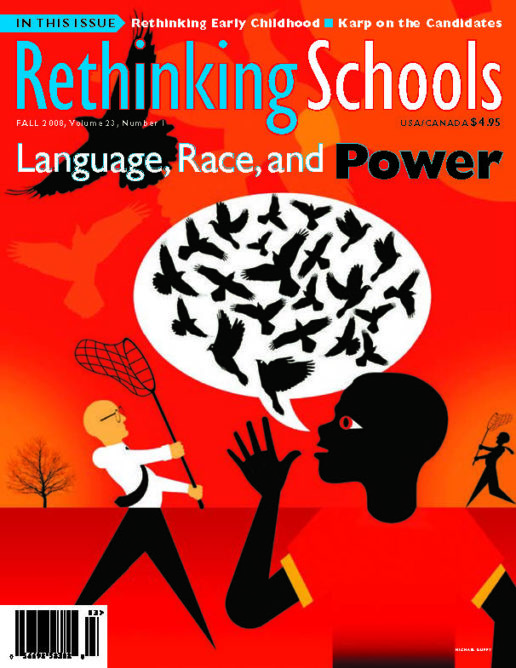Preview of Article:
An Incomplete Identity
A young teacher laments the lack of black mentors
Illustrator: Chris Mullen
Even before I enrolled in my teacher education program, I was aware of the lack of teachers of color in a largely white and female teaching force. In the urban, suburban, and private schools I had attended, I could count the number of black teachers I’d had on one hand. By the time I began student teaching, I still barely needed to use two hands. I had spent three and a half years reflecting on the crisis in American education, with such a mismatch between the faces of the learners and the faces of those in power. I knew how empowering it felt to have a teacher who looked like me, standing in front of the class. I was familiar with the foundational identity work of Kenneth and Mamie Clark, William Cross Jr., W. E. B. Dubois, and others. I had read Juwanza Kunjufu, Lisa Delpit, Jonathan Kozol, Asa Hilliard Jr., and more.
From these readings and my own experiences, I was aware of the negative impact that not having black teachers had on black school-age students. I felt eager, but prepared for the frustrations student teaching would bring. My advisor warned me about the lack of sleep. I no longer regretted the loss of the college student weekend that started Thursday at 5 p.m. I had even come to terms with missing my last spring break, as my university’s calendar was not aligned with the school system’s. I was running on a bubbling passion to reach urban black students.
However, I was not prepared for the impact that the lack of black teachers and administrators in schools would have on me, only one semester from wrapping up my undergraduate career. And I was not prepared for the profound effect that their absence would have on my identity as a black teacher.

